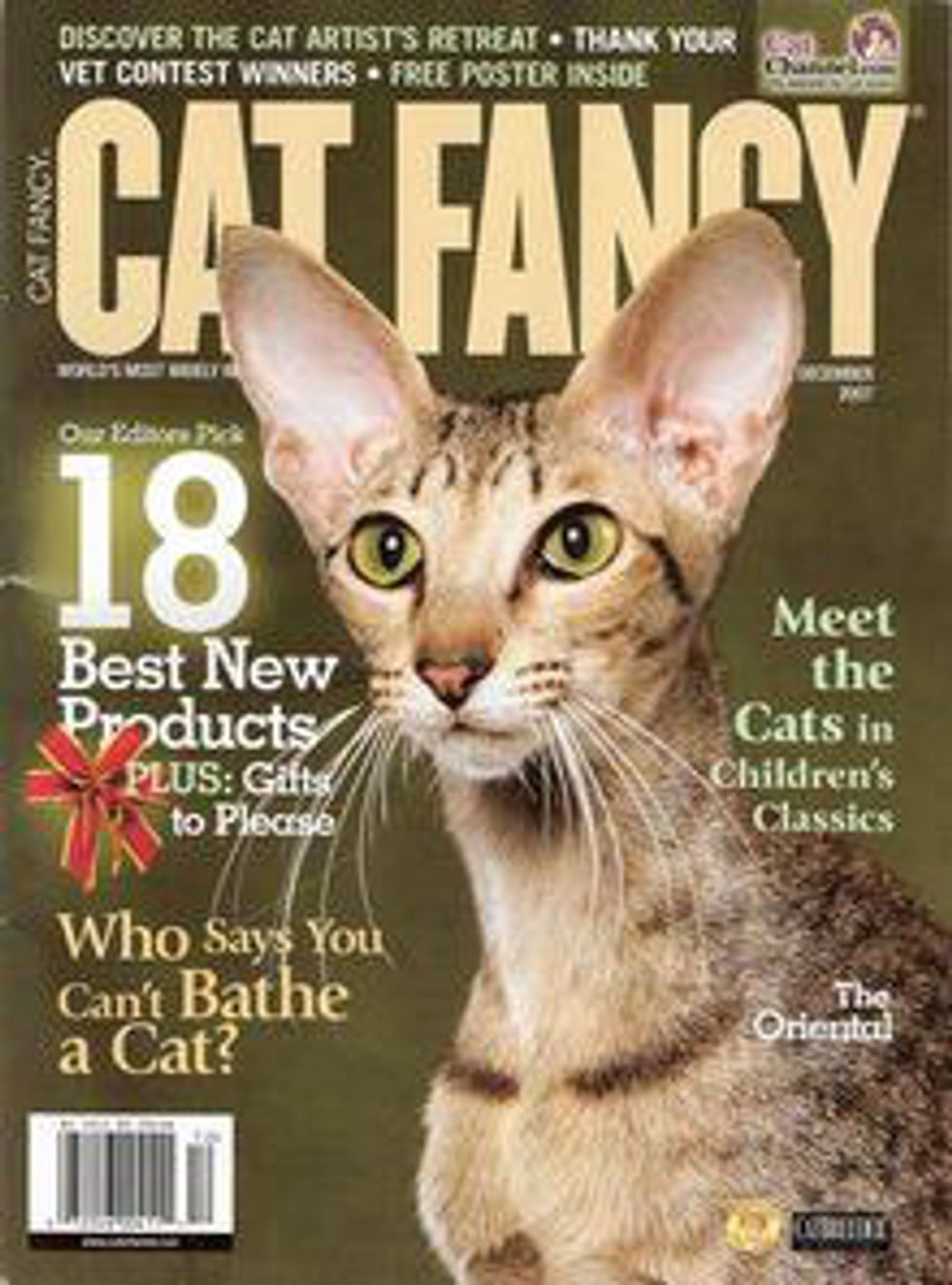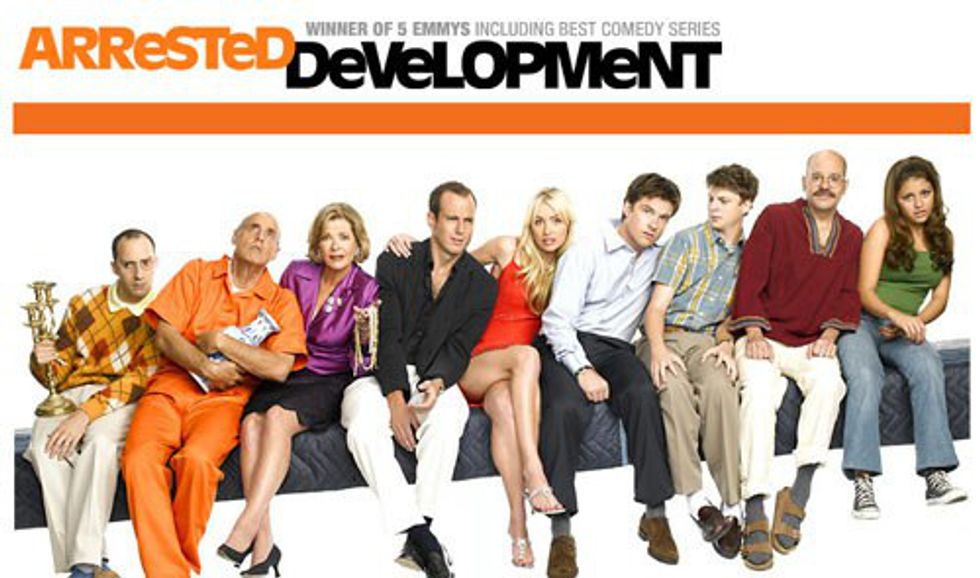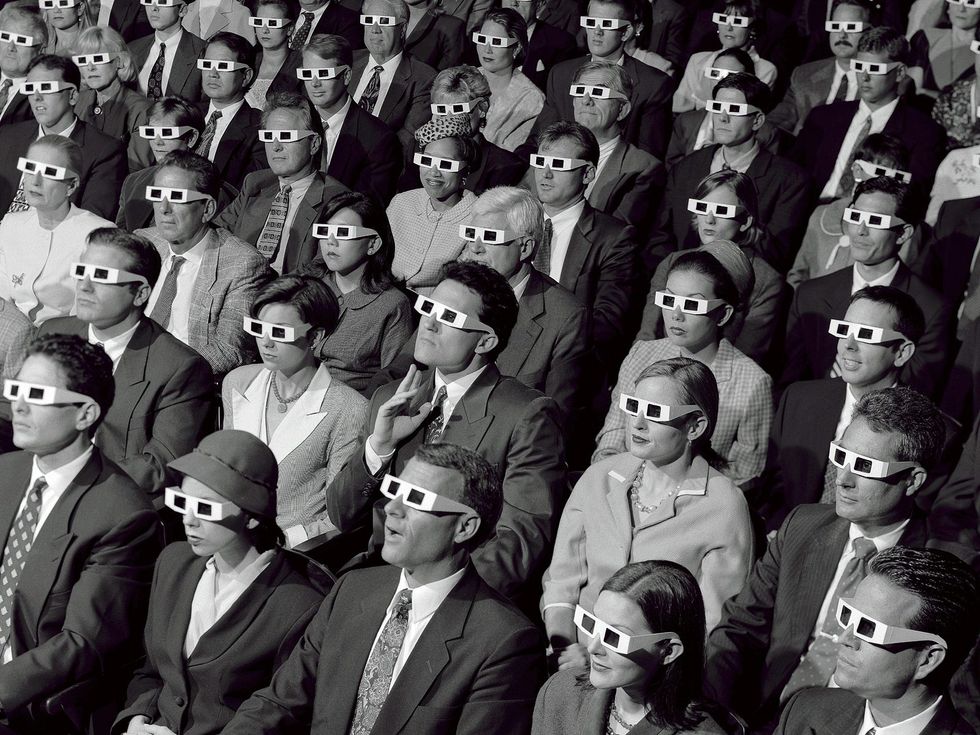Violent films and video games have largely been criticized for desensitizing the participant. The argument is that if children are inundated to violence, knowing that there are no real life stakes but instead the stakes of the fictional characters, said participant will brush the violence off. Then, a similar act were to happen in real life, that same participant would have the same reaction, acting as though it weren’t real.
When it comes to desensitization, violence seems to hold a monopoly, but I argue that it happens in more places than we know, though those places are rather popular. Media of fiction that takes place in the future, in my opinion, holds a far more greater sense of desensitization. A big part of that, too, seems to be the sense that the audience is learning something about the future about the future, almost as if it were a history lesson. It’s the phrase your high school history teacher kept bludgeoning in your head: “we learn about history so we’re not deemed to repeat it” or a variation of that sort. A dystopian future shows the world say we were to repeat history, giving us an “educational” look at the future.
In an increasingly dubious world, education is one of the only things we can trust, if that. So these future period pieces we see all the time are ones that give us a sense of meaty educational heft, imaginative ones amid the drudgerous unimagination that Hollywood had inundated us with. This could be a sign as to why franchises such as The Hunger Games, Divergent, and Maze Runner have all achieved some success, even though they are essentially the same thing.
It’s ironic, though, that we hold these series to such high regard among the unimaginative trash, being that these series, more popular as the adapted films, are themselves unimaginative, on a textual basis at least. These films are not original but, of course, based on books, being that the dystopian drama has been shaped to be predicated on being book-adapted. To an even further extent, the films’ unoriginality has hit the point where there have been two parts to the final chapter. The Hunger Games’ Mockingjay was bisected despite not needing to do so. Suzanne Collins’ final edition did not reach the over-bearing number that more worthy two part adaptations such as Harry Potter and the Deathly Hollows reached, Mockingjay only reaching 390 pages, and the films suffered because of that. While the first two were given favorable reviews, casting an impressive 84% and 89% critics rating on Rotten Tomatoes, respectively, Mockingjay Part 1 and Part 2 respectively only scored 65% and 70%. That hardly seems to be a concern for Lionsgate as both films received a combined gross of over $587 million dollars compared to the first feature’s $408 million and the second’s $424 million. It should be noted, though, that neither of the Mockingjay films received more gross than the first two features despite its being the final film and, logically, more important.
To revert back to these dystopian films being the same thing, this similarity can question the validity of its so-called “fear of the future.” Are all of these writers trying to give their own fears or are they doing something that is less profound and more, dare-I-say, greedy, almost like the greediness of those who were willing to adapt the films? The “educational” heft of these stories collide with its mainstream appeal, creating a paradox in today’s film business.
Looking closer to these films, it’s apparent that there is an entertainment value as well. The Hunger Games is about pitting twelve children against each other to battle it out toward the death. Yes, there is a social aspect to the film, a confederate plead against the increasing unitarian society that is the United States, but The Hunger Games stays true to its title by focusing on its main event. Being a Hollywood film, one whose primary purpose is to entertain, a factor that some of us might have subconsciously recognized but whose conscience did the dirty work to cover up from us might be this: maybe we enjoy seeing these people struggle in their dystopian world given its entertaining prospect. So, yes, we actually do enjoy seeing kids kill each other. Something like this on its own wouldn’t work out, no. The dystopian element needs to come in effect because we need to act as if we’re being educated--that we’re the good guys. If the film were to be about kids killing each other without any glitch in the overall system, letting this happen, we would not be akin to it, but this dystopian society gives us an excuse to secretely enjoy it. But, in reality, we are the voyeurs. We are in the same position as the interested people of the capital: toleraters.
These dystopian films are, on the surface, means as to us fearing the future, but in reality its corporate authors and executives capitalizing on the animalistic impulses of the public and taking our money. We don’t see that and, in result, we see the future as a dystopian world, one with vague biblical allusions and an extreme form of government, but, in most importance, something exciting. We see the future as something to be excitedly nervous about, not something bland.
However, I’ve seen a trend, one that’s especially been indicated in 2015, and I state my case that the future will not be some exciting society, one where the 9-to-5 has dissolved in favor of mazes or factions or districts. No, the future will become bloated and oversaturated. It will become something too deep for someone to dig their teeth into, something virtually unmarketable. It will branch off infinitesimally, not being inherently better or inherently worse than the past. No. The future will be only and all about opportunities.
On a surface, base level, opportunities based on race, gender, religion, etc. have clearly become more available. Think about just one hundred years ago, women weren’t able to vote as well as African-Americans (kinda). You might as well say you weren’t gay in 1915, keeping away who you were your whole life. You were expected to not only follow your religion strictly but follow the religion you family had. Clearly this assimilation has begun.
The big things are being checked off now. People are now able to get married or vote or live or anything despite their differences. That’s the easy stuff, the one that goes down first. The big milestones are down but now there are small things, most complicated and, in a way, controversial than the big things. While women can be in the same positions as men, they are still critically underpaid, receiving only 79 cents for every dollar a man makes at the same job. This problem is more subtle than voting, but still a problem nonetheless. However, the more complicated and subtle these differences are, the more complicated it is to have legislation passed. There is an offset here, though. As the world keeps going round, politicians are to be more and more progressive, fitting the times. So although these issues being presented are closer toward the equality between the minority and the majority, a more progressive legislative branch is more akin to reach it.
An issue with that, though, is not for the politicians making the rules but for the citizens following them. With more complications in these issues, it will be easier for people to not understand them completely and oppose them. The Black Lives Matter follows a specific case, one that involves police officers killing black civilians. This is such a tricky measure, too, given that, most of the time, the victims are being pursued for a crime. There is such a fine line between necessary and unnecessary force that some people get caught in that line. But, despite the difficulty, it is no excuse for people to support one side or the other without understanding what the line is, how it can be crossed, and when it gets crossed. So though people get more progressive, the complication of future conflicts will throw these more progressive people off. What results is a confusing world where though we start to get more progressive and agreeable, we also are stay as argumentative as ever.
Despite these shortcomings, progress will be made, as it always had, and people will get more opportunities to be who they are. The LGBTQA community has made several giant leaps in 2015. However, it is still in the “big things” category, being that gay marriage was finally legalized, and still have a long way to go, but it made a good start.
Job opportunities not just for minorities but for everyone have had and will continue to be seen fit. When one thinks of the Middle Ages, that person might think of chivalry--but not actual chivalry; just the really small part of it that tells about the old ways of men courting women like putting jackets over puddles for women to step over or protecting a woman from being swept up and kidnapped to another castle. But the second, more relevant aspect of futile life was the futil system. Yes, that was when people were born into their positions; children of royalty would become royalty and children of serfs would become serfs. This was the custom.
We are not in feudal times anymore and, in some way, good for it. Though it’s nice to be born into a family, not do anything, and become king, it kinda sucks when you’re born into serfdom. Though today’s system of receiving occupations doesn’t necessarily guarantee you better living (well, proportionate to the standard of living in the middle ages), it is considered more fair. People should be able to pursue what they want to pursue. Though they’re not guaranteed it, it’s an opportunity that seems right.
This does not come without its complications, though. Not having to choose a career is, though a little harsh, also one less thing you have to worry about. Eighteen year old sons of knights don’t need to fret about what they are going to do with the rest of their life; they can just get ready to be a knight. This choice is jarring to some because when people are given options, they get overwhelmed. This choice, this important choice, is very difficult. It has even shaped adulthood.
David Brooks talks in his book The Social Animal about the stages of life. He says that in the past there were three stages of life: childhood, adulthood, and old age. Now there are five; childhood, the odyssey years, adulthood, early retirement, and old age. These odyssey years are the early, mid, and sometimes late twenties of Americans, ones that are either going to college or working at low wage jobs and trying to figure out what they want to do with their lives. This way of thinking is not so different from Jean Twenge’s “An Army of One: Me” which talks about the Millenials’ importance on themselves, a byproduct of given opportunity. What will happen in the future is an expansion of these odyssey years, ones in which mid-thirty year olds will still be figuring themselves out.
The liberal arts school is accommodating in that. Being liberal arts students, students are required to take courses of all different fields of work and thought, testing the students out to all the different fields of work there are to offer. There is a great deal of flexibility. This is unlike business programs which students adhere to a strict course load and are only supposed to go for a certain amount of years. Businesses have catered more toward graduates with liberal arts students in the past years due to an ever-changing job markets; employees no longer need to be taught to do but need to be taught to learn whatever it is to be done a that certain occupation at that certain time. With this demand for liberal arts students, there will be more twenty-somethings taking that one more year of school or working two part times jobs while they really think over what they want to do.
So, yes, this is an extreme version. Not most kids will be like this. Some will benefit heavily from the system. Maybe they took a specific class in the spring semester in their freshman year because they were required to and enjoyed that class to the point where they make a career out of it. However, given this spectrum of job opportunities, there will be a spectrum of odyssey kids, spanning from all figured out to not quite figured out. Not inherently better or worse, but there are more opportunities.
Of course there is the technology argument. Technology seems to be wrapped in bad press. Dystopian stories (callback, much) seem to often have technology as a negative and a more prevalent presence in our lives. One of the best examples is Disney Pixar’s Wall-E where people are secluded to their screens all day, not making any interaction with other people.
Before we talk about the impending doom of our social skills, let’s talk about technology in its essence, since it will be a trademark of our future. Technology. at its core, is about opportunity. Have someone across the Atlantic Ocean you would like to talk to? Now you get the opportunity to do it. Ever want to wrap yourself up and read a book but could never put on your blanket right to comfort you? Now you get the opportunity to do it. We will have so much we can do in the future we don’t even know how it will be. We will have the opportunity to do so much and when virtual reality happens? Virtual reality is all about having the opportunities to do things you wouldn’t be able to do in real life.
Again, though, there comes the downside, and many people think of virtual reality as the death to society. Though technology really seems like a downside at some points, it’s not a life sentence; it’s an opportunity, one which can be turned down. Sure, you can buy your own VR system and play it all day, but you can also always turn it down, because you know what? You have the opportunity to either do it or not do it. And yes, that makes this oh so much complicated but, hey, at least you have penicillin.
Opportunity stretches to all aspects of the world including our favorite: entertainment. The best way to explain is through one of my idols Dan Harmon at his comedy master class. “There used to be, for instance, one magazine,” Harmon said, “literally called “Life.” But then as technology for printing magazines got more efficient, more available, more cost-effective, you know, you fragment that media into subtopics of life like ninjas and “Cat Fancy” and Mark Wahlberg.
“The same thing is going to happen with--well, we watched the same thing happen with the music industry and we’re watching it happen right now with television; it’s going to happen with all media. All media gets fragmented, resulting in specialized content, more of it for smaller audiences which presents more opportunities for everybody at much less pay.”
This fragmenting, this branching off is almost a sub-thesis of the added opportunities. It’s the classic double edged sword. Yes, there is that special preference you have like “Cat Fancy,” but it’s also a specialized audience, resulting in a lesser quality in work. Though “Life” is broad, it also had everybody’s assistance and, thus, the best magazine. But now we have so many magazines that the work and the sacredness toward the magazine has diluted.
Opportunities are why television has become so popular. With networks independent of commercials and less concerned about ratings such as HBO and Showtime and now with the advent of streaming shows like on Netflix, we are entering an age where television is becoming more independent-spirited. When television shows were strictly on the major networks, there was only one thing that mattered: ratings. Ratings are why a show cancelled or why a show started. Having a show be predicated based on ratings alone, though, does not guarantee a good show, if you can see through examples like Keeping up with the Kardashians and The Big Bang Theory. With all of these channels and platforms that are funded through subscription, television shows that used to have no shot on normal television is now given the opportunity on HBO, Hulu, etc.
This has resulted in television reaching it’s so-called “golden age,” one that is based on the opportunities presented. And it is also the audience’s opportunity to watch these shows. But with so many shows, it becomes so difficult to keep track. And with so many shows, the audiences get more segmented and segmented. You’re hesitant on making a blind reference at a show the next day at work because there isn’t that good of a chance of your coworker having seen it. Yes there are those shows that have broken through and reached huge publicity such as Breaking Bad and Game of Thrones, there are so many crictically acclaimed shows like BoJack Horseman, Veep, and Transparent that fail to reach that overarching audience, one that is so key in TV. What used to be common only in indie films is now what is happening in tv, where you can fall in love with the characters on Review but not have anyone to talk about it too.
Going back to shows on other networks and platforms that wouldn’t do well in the big networks, there has been a trend involving shows previously cancelled on these big networks despite having critical acclaim and having them be renewed on other networks. One great example of this is Arrested Development, a sitcom about a dysfunctional family originally spanning from 2003 to 2005 and currently holding an impressive 9.0 rating on IMDb. The show was cancelled by Fox due to low ratings in 2015 but brought back in 2013 by Netflix. Pre-Netflix, this wouldn’t be possible; there would be no opportunity to bring a show back like this on a different platform. But there we are, getting the second chance with the one that got away.
Despite huge hype, the fourth season of Arrested Development, to many, was a failure. One big criticism was the platform of the show. Because of the enormous fame several of the actors had achieved since the show’s Fox run, many of the cast was only able to appear at a specific time, thus splitting the family apart. Though this worked sometimes (i.e. Maeby and Gob’s episodes) several of the episodes felt flat. I think that this lukewarm response to the fourth season has left Arrested fans ambivalent on their feelings of the show. Their previous calling card of the show’s perennial greatness and undeserved exit is now replaced with the show coming back to life, what they wanted, and an average fourth season, showing that even Mitch Hurwitz is mortal. The fourth season of the show would not have worked on big network television and that’s in a bad way. This fragmented season brings back to the Cat Fancy argument that fragmented media can also mean cheap quality.
This opportunity to bring back old shows also lets the show lose its, I’ll say this word again, sacredness. You already said goodbye to these characters, moved on, and now they’re back? It’s like missing that ex and when they came back you realized that although it’s nice, sometimes it’s just better to move on. Then the idea that you had such great closure is gone. This idea applies to many other forms of media, like book adaptations and film sequels and reboots (*cough*cough*Star Wars*cough*cough*). Opportunities are fun but sometimes they’re just better left untaken.
Music is getting just easier and easier to make. Soundcloud has now given anyone with a smartphone the ability to record and upload music. Thus, more music is getting put into the world. Record deals used to be the big thing, the only way to get through. But more and more often artists are slipping through the cracks with independent labels. With all of this new, underground music, there has been a shift in what is considered popular music. To many, true “artists” have forgone the big studios with heavy regulation in favor of what was previously seen as a more risky route.
But with the advent of all of this technology and democratization of music, there is now a rift. Popular music and critically acclaimed music was synonymous in the oldies. Then, as time went on, there started to be more differential--more segmentation. Rock wasn’t rock anymore; there were so many subgenres and subsubgenres. Alternative music started to become known and coined. Now there’s the point where radio hits, the conventional stuff, has been criticized to no ends. In my opinion, most of the good stuff is the more independent stuff, and many people share my opinion, though those are people who had to really dig to find it. I remember talking to my dad’s friend this Spring. We were at a barbecue and a 70s rock song that has escaped my mind was playing. For all intents and purposes, think of your favorite Journey song and set the scene with that. My dad’s friend said “now this is some good music, not like what gets made today.” I told him in response. “There is good music today; you just have to find it.”
And it makes sense; doesn’t it? The idea that all good music stopped getting made a certain period is ludicrous. I can’t blame people who share the same opinion as my dad’s friend--and there are a lot of people--but music doesn’t stop at the radio. Once again, it’s a double edged sword. There is so much great music being made today. I don’t like to voice this opinion too much, mostly because I think that it is slightly (only slightly) biased by the time period I live in, but I do believe that the music being made today is the best there has ever been. However, this music is being largely unheard because the music scene today is oversaturated and the only music that gets played on the traditional radio is commercial garbage with some light exceptions (i.e. Kendrick Lamar). This inability to be accessible is such a problem to our influx of opportunities, making the world so bloated.
I do not mean to say the world is getting worse or better. Inherently, at least. If I were to give some advice, it would be to keep an open mind and pursue what interests you--even what provokes you. The world will continue to get more and more complicated and it’s easy to just throw your hands up and say no good music gets made anymore. Dig deep into whatever there is and you will find what you’re looking for and sometimes, if you’re lucky, something you love that you never expected. Yes, it’s an arduous task, something that was not necessary in the “simpler years.” However, the more you dig and make the most of your opportunities, the more you will be rewarded.






 all stars lol GIF by Lifetime
all stars lol GIF by Lifetime two women talking while looking at laptop computerPhoto by
two women talking while looking at laptop computerPhoto by  shallow focus photography of two boys doing wacky facesPhoto by
shallow focus photography of two boys doing wacky facesPhoto by  happy birthday balloons with happy birthday textPhoto by
happy birthday balloons with happy birthday textPhoto by  itty-bitty living space." | The Genie shows Aladdin how… | Flickr
itty-bitty living space." | The Genie shows Aladdin how… | Flickr shallow focus photography of dog and catPhoto by
shallow focus photography of dog and catPhoto by  yellow Volkswagen van on roadPhoto by
yellow Volkswagen van on roadPhoto by  orange i have a crush on you neon light signagePhoto by
orange i have a crush on you neon light signagePhoto by  5 Tattoos Artist That Will Make You Want A Tattoo
5 Tattoos Artist That Will Make You Want A Tattoo woman biting pencil while sitting on chair in front of computer during daytimePhoto by
woman biting pencil while sitting on chair in front of computer during daytimePhoto by  a scrabbled wooden block spelling the word prizePhoto by
a scrabbled wooden block spelling the word prizePhoto by 
 StableDiffusion
StableDiffusion
 StableDiffusion
StableDiffusion
 StableDiffusion
StableDiffusion

 women sitting on rock near body of waterPhoto by
women sitting on rock near body of waterPhoto by 
 Photo by
Photo by  Photo by
Photo by  Photo by
Photo by  Photo by
Photo by  Photo by
Photo by  Photo by
Photo by  Photo by
Photo by  Photo by
Photo by  Photo by
Photo by  Photo by
Photo by 









